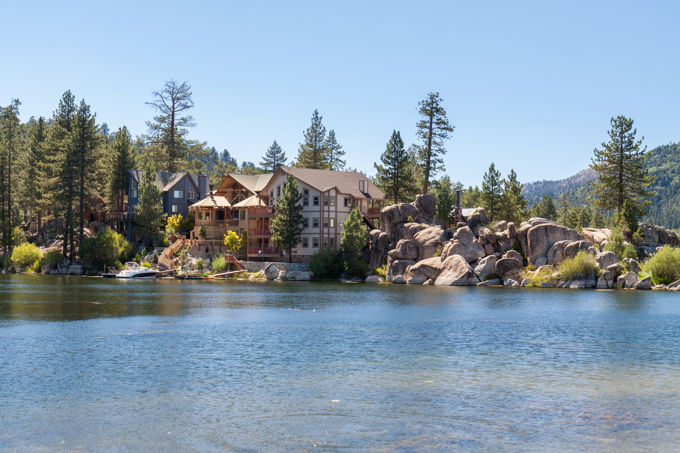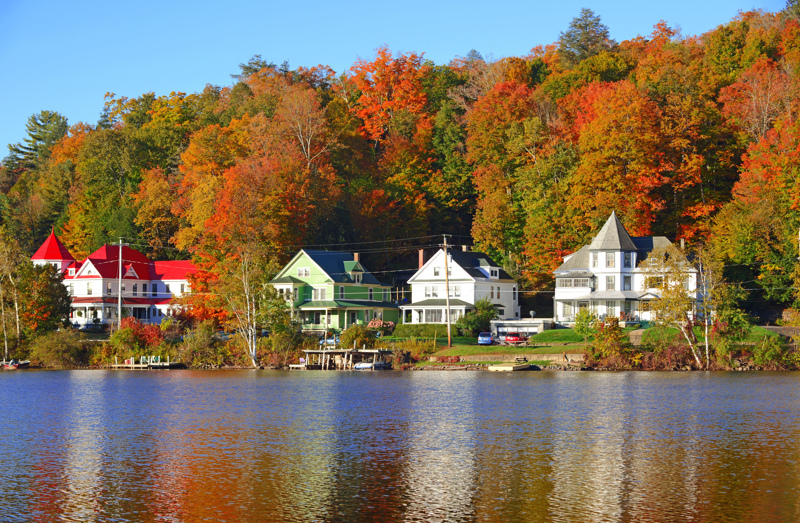
Littoral Rights vs. Riparian Rights – Differences and Similarities Explained
How Do Littoral Zones Differ from Riparian Zones
A littoral zone refers to a pooled body of water, such as a pond, lake or ocean. Riparian zones, in contrast, refers to a flowing water, like a river, creek or stream. Most people never encounter the need to learn about the difference in these terms but, for those who do, the terms “littoral zone” and “riparian zone” are oftentimes used interchangeably even though, as a technical matter, doing so is incorrect. The Virginia Supreme Court, in 2012, explained the difference:
Throughout their arguments, both parties refer to the rights at issue in this case as "riparian" rights. The term "riparian" is usually defined as "[o]f, relating to, or located on the bank of a river or stream (or occasionally another body of water, such as a lake)." Black's Law Dictionary 1441 (9th ed. 2009); see also Scott v. Burwell's Bay Improvement Ass'n, 281 Va. 704, 710, 708 S.E.2d 858, 861 (2011) ("The term 'riparian rights' refers to a specific set of five benefits that accrue to the owner of land adjacent to a navigable river"). The more proper term for the rights at issue in this case is "littoral," which is defined as "[o]f or relating to the coast or shore of an ocean, sea, or lake." Black's Law Dictionary, at 1018.
Lynnhaven Dunes Condo. Ass'n v. City of Va. Beach, 284 Va. 661, 673 fn. 6 (2012).
Most people are unaware of the difference between “riparian” and “littoral”. The Virginia Supreme Court observed that even the attorneys in the Lynnhaven Dunes Condominium Association case were unaware, as is the Virginia General Assembly:
The General Assembly's use of the term "riparian" throughout the Code, however, is inconsistent with the strict definition of the term. See, e.g., Code § 28.2-600 (dealing with the assignment of oyster planting grounds within the "riparian waters" belonging to "[a]ny owner of land bordering on a body of water . . .").
Lynnhaven Dunes Condo. Ass'n v. City of Va. Beach, 284 Va. 661, 673 fn. 6 (2012).
Mixing the two terms may not much matter in the view of the Virginia Supreme Court: “Accordingly, we recognize that, in Virginia the term ‘riparian’ is defined as: of, relating to, or abutting any body of water.” Lynnhaven Dunes Condo. Ass'n v. City of Va. Beach, 284 Va. 661, 673 footnote 6 (2012) (citing a 2010 decision where the U.S. Supreme Court wrote "Many cases and statutes use 'riparian' to mean abutting any body of water".).
The question on the mind of a person owning littoral lands, though, is: What are my littoral rights? Are those rights any different from riparian rights?

Shutterstock: Natalya Erofeeva
What are Riparian Rights?
If, as the Virginia Supreme Court stated in the Lynnhaven Dunes Condominium Association case, mixing the terms “littoral” and “riparian” does not matter then littoral rights are perhaps identical to riparian rights. So, let’s begin by establishing the nature of riparian rights in Virginia law.
Riparian rights are the rights enjoyed by the owner of riparian land. My article in this blog, Riparian Rights Explained – What Are Riparian Rights in Virginia?, describes the five riparian rights recognized in Virginia law. The owner of riparian land holds these rights in a zone known as the “riparian area”. My article in this blog, Riparian Rights for Establishing a Riparian Area Under Virginia Law, explains the method that the owner of riparian land must use to establish his or her riparian area.
What are Littoral Rights?
This approach – treating littoral rights and riparian rights as equals – is fine in most cases. There are, however, some notable exceptions. Recall that littoral waters are a pooled body of water, such as a pond, lake or ocean. The ownership of bottomland beneath two specific types of littoral waters in Virginia – ponds and lakes – resides in private persons. In contrast, ownership of bottomland beneath two specific types of riparian waters in Virginia – rivers and creeks – resides in the Commonwealth of Virginia (with some exceptions). The owner of land at a lake or a pond in Virginia – land that is technically littoral, not riparian – may find that he or she lacks one or more of the five riparian rights conferred by Virginia law owing to the fact that the bottomland is privately owned, as opposed to that bottomland being owned by the Commonwealth of Virginia. These details are explained in my article in this blog, Do I Control What Happens on the Water at my Waterfront Property on a Lake or Pond?, but the larger point is that, at least in some instances, when it comes to littoral rights, the distinction between littoral and riparian may matter.
Littoral Rights Example
One such example is the right to build a pier from the shore out to the line of navigation, a right held by the owner of riparian property abutting a river or creek where the bottomland is owned by the Commonwealth of Virginia. The owner of littoral property abutting a lake or a pond may or may not enjoy a comparable right. The same may perhaps be true with respect to property line adjustments as a result of accretion and erosion.

Shutterstock: Robert Cicchetti
Difference Between Littoral and Riparian Rights
As you can see from reading this article, determining the extent of your rights – whether they be littoral rights or riparian rights – brings up a complicated area of the law requiring special expertise. The attorneys on our Waterfront Property Law Team have strong connections, significant legal experience and go the extra mile for our clients to get the job done. A few years ago one of our attorneys kicked off his shoes and got in the water to fend off a criminal enforcement action. The attorney got soaked in the process, but he protected our client from facing criminal charges. Contact us to get the help you need from attorneys who go the extra mile to serve you.
